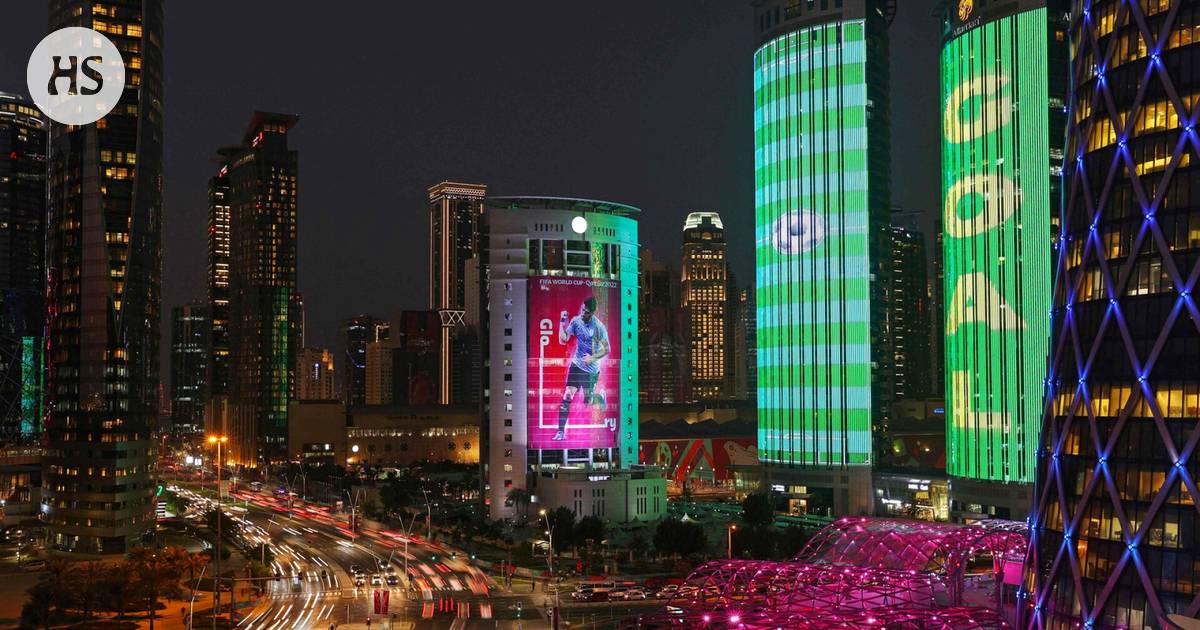Rolex diplomacy is a bigger problem than Qatar, says researcher Marko Halonen from the University of Helsinki.
Suddenly the tentacles of small but rich Qatar are everywhere: first in the decisions of the international football association Fifa and now in the EU Parliament.
On Friday, the Belgian police arrested at least five people who are suspected in a wide-ranging corruption case related to the EU Parliament and a certain Persian Gulf country. Charges were brought against the four arrested.
Read more: Four indicted in corruption investigation – AFP: Indictment at least for Deputy Speaker Kail
Although the authorities did not directly name a “certain Gulf country”, according to all media reports, it is Qatar.
Arrested deputy speaker of the EU Parliament Eva Kaili has praised Qatar profusely in public and voted, for example, in favor of visa freedom for Qataris. This is despite the fact that Qatar’s miserable human rights situation has been prominently displayed during the last few months due to the World Cup.
Where What is Qatar really trying to do?
It’s about “Rolex diplomacy” based on bribes and favors, which in itself is nothing new, says a researcher at the University of Helsinki Marko Halonen.
“This kind of quid pro quo attitude is widespread and typical. Qatar has been accused of this kind of activity for decades,” says Halonen.
The Latin pronunciation means barter for consideration, offering a service for a service.
Halonen has studied Qatar for a long time and lived in the country in 2019–2020. He has also co-authored a book about Qatar and its neighbors Little giants of the Persian Gulf. Qatar has allegedly engaged in Rolex diplomacy more or less prominently since at least the 90s, he says.
The operation is partly based on a foreign concept of democracy. In the countries of the Persian Gulf, democracy is seen to work when the will of the majority or the strongest is fulfilled – not when everyone’s common interest is pursued, Halonen explains.
“They think it’s okay to lobby one party into power, and when it’s in power, it can do whatever it wants.”
Qatar wants to promote, at least for it, gas trade with EU countries and visa freedom for its citizens in EU countries. In addition to financial benefits, the reason behind the pushy influence attempts is the need of a small state to make itself known in the world, says Halonen. A country only about the size of Uusimaa has drifted into disputes with most of its neighboring countries.
“They are in a dangerous position. It is important for a small country to show that it is independent and has its place in the world.”
According to Halonen, the method of operation in itself is therefore not new or surprising. What is new is that it is Qatar that is in the spotlight. The actions of the state are now being blamed more precisely than usual because of the soccer world championships.
“Qatar has gotten a lot of flak for this soft power program, because it seems like the Games have been bought. At the same time, the question arises, what else has been bought?”
Without the soccer games, researchers and journalists would hardly have been able to draw so much attention to Qatar, says Halonen.
Halonen thinks it’s good that the corruption problem is coming to the fore, but he warns against focusing too much attention on Qatar alone. Although the country is rich for its size, its gross domestic product is smaller than Finland’s. In the end, Qatar is therefore a small gambler compared to its neighbors, who are happy to deflect all negative attention to Qatar.
“You have to be careful not to beat yourself up because it’s easy. Everyone should be treated the same,” says Halonen.
“You have to remember that Qatar has influential competitors such as Saudi Arabia and the Emirates, who are exerting the same influence themselves, but even more so. It is in their interests that Qatar now gets hit in the neck.”
Among other things, a member of the European Parliament Heidi Hautala stated to HS earlier that influence attempts like the one under investigation have been known for a long time.
“Many foreign powers try to influence the positions of the European Parliament and seek influential parliament members who are exposed to the message of authoritarian states,” said Hautala.
Read more: Heidi Hautala to HS: “The most serious ever” suspicion of corruption in the EU Parliament
Halonen also thinks that if the matter is actually investigated now, more abuses will be revealed under the surface.
“Unfortunately, if you follow international politics and economic life, it is full of situations where you are in a gray area.”
Halonen hopes that the investigation of the corruption case can be carried out independently and that the discussion will expand to include other countries that use the same methods.
The investigation may have a salutary effect, but that is not said.
Until now, Qatar has wanted to build good trade relations with Europe and has therefore been ready to make changes to, for example, working conditions, says Halonen. Faced with harsh criticism, it can turn away and direct its eyes to Asia instead of Europe. For example, China, India and Japan are its growing trade partners.
“The world is vast, and after all, there are not very many countries that share our understanding of free values.”
